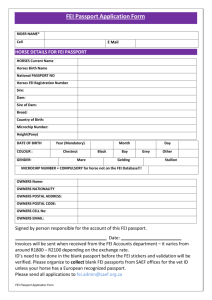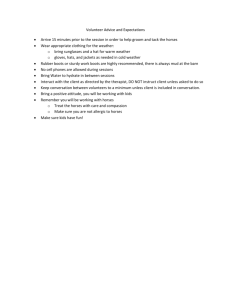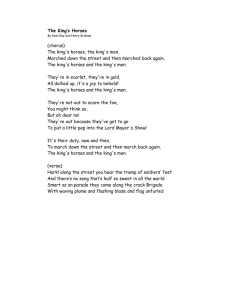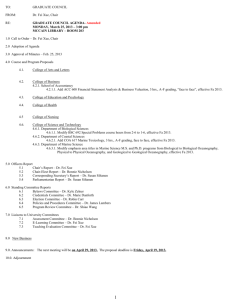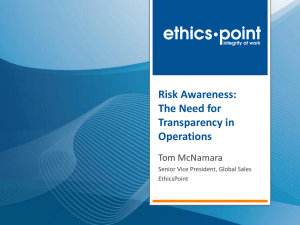2011 FEI General Information
advertisement
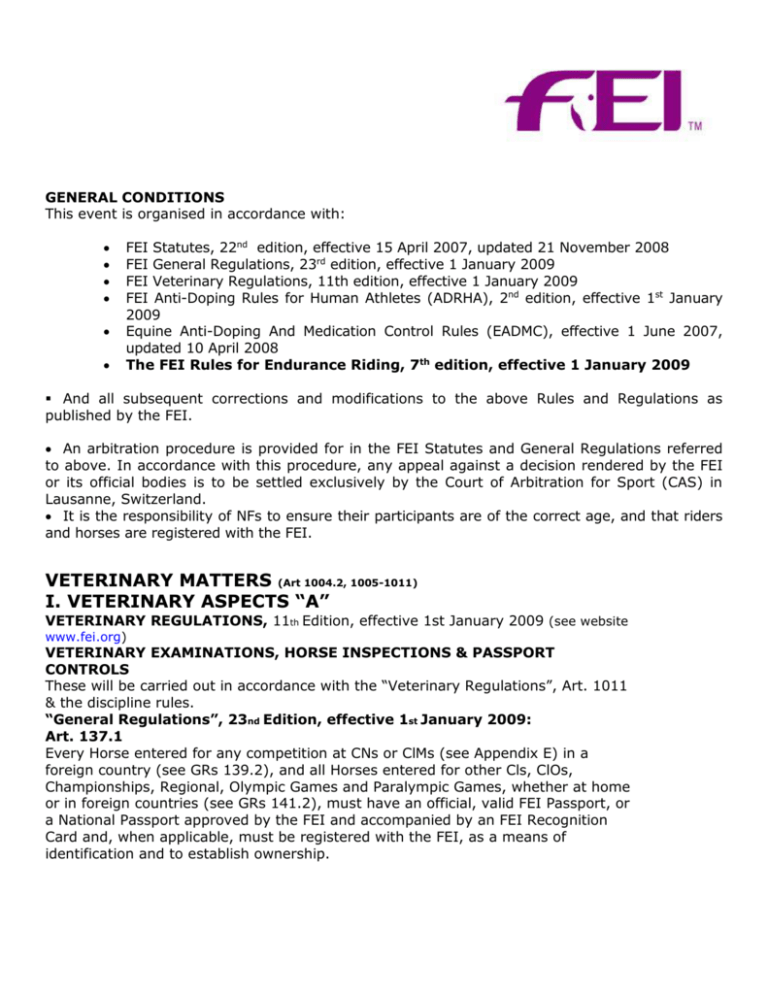
GENERAL CONDITIONS This event is organised in accordance with: FEI Statutes, 22nd edition, effective 15 April 2007, updated 21 November 2008 FEI General Regulations, 23rd edition, effective 1 January 2009 FEI Veterinary Regulations, 11th edition, effective 1 January 2009 FEI Anti-Doping Rules for Human Athletes (ADRHA), 2nd edition, effective 1st January 2009 Equine Anti-Doping And Medication Control Rules (EADMC), effective 1 June 2007, updated 10 April 2008 The FEI Rules for Endurance Riding, 7th edition, effective 1 January 2009 And all subsequent corrections and modifications to the above Rules and Regulations as published by the FEI. An arbitration procedure is provided for in the FEI Statutes and General Regulations referred to above. In accordance with this procedure, any appeal against a decision rendered by the FEI or its official bodies is to be settled exclusively by the Court of Arbitration for Sport (CAS) in Lausanne, Switzerland. It is the responsibility of NFs to ensure their participants are of the correct age, and that riders and horses are registered with the FEI. VETERINARY MATTERS (Art 1004.2, 1005-1011) I. VETERINARY ASPECTS “A” VETERINARY REGULATIONS, 11th Edition, effective 1st January 2009 (see website www.fei.org) VETERINARY EXAMINATIONS, HORSE INSPECTIONS & PASSPORT CONTROLS These will be carried out in accordance with the “Veterinary Regulations”, Art. 1011 & the discipline rules. “General Regulations”, 23nd Edition, effective 1st January 2009: Art. 137.1 Every Horse entered for any competition at CNs or ClMs (see Appendix E) in a foreign country (see GRs 139.2), and all Horses entered for other Cls, ClOs, Championships, Regional, Olympic Games and Paralympic Games, whether at home or in foreign countries (see GRs 141.2), must have an official, valid FEI Passport, or a National Passport approved by the FEI and accompanied by an FEI Recognition Card and, when applicable, must be registered with the FEI, as a means of identification and to establish ownership. Art. 137.2 Horses taking part in CNs and ClMs (see Appendix E) in their country of residence are not required to have such a passport as is mentioned in paragraph 1. All such Horses must be properly registered with the FEI and identifiable and, unless there is no national requirement for equine influenza vaccination in the host country and in the country of origin all horses must have a valid vaccination certificate. EQUINE INFLUENZA VACCINATION, VET. REGS. ANNEX VII (except events taking place in NZL & AUS) All horses intending to participate in FEI competition must have at least received an initial primary course of two vaccinations, given between 21 and 92 days apart. Thereafter, a third dose (referred to as the first booster) must be given within 6 months + 21 days after the date of administration of the second primary dose, with at least annual boosters given subsequently (i.e. within 365 days of the last dose). The above are the minimum requirements for influenza vaccination. Both primary and first and subsequent booster injections should be given according to the manufacturer's instructions which will fall within the stipulation of the FEI ruling. FEI Check List – Draft Schedule 2009 APPENDIX 2 SAMPLING FOR PROHIBITED SUBSTANCES (Vet. Regs. Chapter V & VI and Annex IV) Regular sampling is carried out in CCI3*/4*, CSIs (3*, 4*, 5*), CIOs, World Cup Qualifiers and Finals, Championships and Games, whereas at other CIs sampling is recommended. Where testing takes place, the number of horses tested is at the discretion of the Testing Veterinarian/Veterinary Delegate. At CCI3* and CCI4*, CSIs (3*, 4*, 5*), CIOs, World Cup Qualifiers and Cup Finals, Championships and Games it is recommended that a minimum of 5% of all horses (with a minimum of 3 horses tested) must be sampled (Vet. Regs. Art. 1016). Special guidelines are applicable for events covered by the FEI Medication Control Programme (Groups I & II only). MEDICATION CONTROL PROGRAMME (GROUP I & II ONLY) The Organising Committees of FEI events within Groups I & II are advised to charge competitors the equivalent of CHF 12.50 per horse per event as a contribution towards the costs of the MCP programme. II. VETERINARY ASPECTS “B” A) CUSTOMS FORMALITIES Details of required customs documents, border crossing points, times of opening and customs agencies. NFs holding an international event in their country must inform the relevant National Veterinary Authority and their Customs Authority at least four weeks beforehand. They must request every facility to assist the movement of horses accompanied by FEI Passports, and the necessary veterinary certification at frontier crossing points into and out of their countries. (Vet. Regs. Art. 1004.2) B) MEDICATION CONTROL LABORATORY Details of FEI listed laboratory appointed to carry out analyses on samples collected at this event. (Vet. Regs. Art. 1021 and FEI Bulletin). www.fei.org/Athletes_AND_Horses/Medication_Control_AND_Antidoping/Horses/P ages/Information.aspx MCP CENTRAL LABORATORY - APPLICABLE ONLY TO GROUPS I & II Under the Medication Control Programme (MCP) in Groups I and II, all samples collected in accordance with Vet. Regs. Art. 1016 will be analysed by the Laboratoire des Courses Hippiques (L.C.H), Verrières-le-Buisson, France. The central MCP Laboratory will be reviewed in June 2009. Please refer to FEI Bulletin for further information. For events other than those listed in Vet. Regs. Art. 1016 or for events other than in Groups I and II, samples may be analysed at an alternative FEI listed laboratory (Vet. Regs. Art. 1021). FEI Check List – Draft Schedule 2009 APPENDIX 3 III. MISCELLANEOUS (Art. 163, 165, 166) A) PROTESTS All protest to be valid must be made in writing and accompanied by a deposit of CHF 150.- or equivalent. B) GENERAL CLASSIFICATION AT THE END OF THE COMPETITONS Full information on all special prizes for example: Leading rider award Best foreign rider Best home rider, etc. Team awards C) PRIZE – CLASSIFICATION (Art. 126,127) Details outlining the system determining the leading rider etc. must be given and any other details pertaining to prize distribution. D) DISTRIBUTION OF PRIZES AND INDEMNITIES (Art. 128) State when and where the prize money will be distributed. All prizes in kind and prize money must be distributed following the last competition at the latest. A minimum of 5 prizes (prize money) must be distributed. Twenty-five percent of participants per competition must receive prize money) E) DOCTOR, VETERINARIAN, FARRIER Details pertaining to the above F) INSURANCES Details that are pertaining to the insurance of competitors, horses. etc. Responsibility of the OC for any damages, fire, theft. etc. The following is to be published in verbatim in each schedule: All owners and competitors are personally responsible for damages to third parties caused by themselves, their employees, their agents or their horses. They are therefore strongly advised to take out third-party insurance providing full coverage for participation in equestrian events at home and abroad, and to keep the policy up to date. G) EVENT’S ORGANISATION (Art. 109, 110) In exceptional circumstances, together with the approval of Chefs d’Equipe and Ground Jury the OC reserves the right to modify the schedule in order to clarify any matters or matters arising from an omission or due to unforeseen circumstances. Any such changes must be notified to all competitors and officials as soon as possible and they must be reported to FEI Check List – Draft Schedule 2009 APPENDIX 4 the Secretary General by the Foreign Judge. H) ENTRY RIGHT TO SHOWGROUNDS Please give full details concerning right of entry to show grounds of owners, grooms, riders, other persons. I) DEDUCTIONS FROM PRIZE MONEY Full details of any deductions from prize money must be outlined in the schedule. This includes government taxes, If it is necessary for OCs to deduct such taxes, they must provide participants with an official form indicating the amount of tax deducted. J) RESULTS (Art. 109.6) Results including the amount of prize money awarded (if any) or the value of the prizes in kind must be sent to the FEI within one week following the event using the standard results form. The horses’ passport, name and nationality of the horse’s owner must also be included with the results. STABLE SECURITY/STEWARDING AT INTERNATIONAL EVENTS MINIMUM REQUIREMENTS TO ENSURE IMPLEMENTATION OF VETERINARY REGULATIONS ART. 1005.2.5, ANNEX IX 1. ACCESS TO STABLE AREA For a high level of stable security, the stables must be completely enclosed within a suitably restrictive perimeter (stable area) which will act both as a deterrent to the admission of unauthorised persons and to uncontrolled exit of horses. The area must be sufficiently large to allow horses to be evacuated from the stables in an emergency but still remain within the confines of the perimeter. However, in some disciplines (see discipline rules), lower levels of stable security are permitted. Whenever possible the stable area must include only stables; lorries, caravans, etc., should not be permitted within the area unless specifically needed as accommodation for horses and/or grooms. Access to stables must be limited to those persons indicated in VR Art. 1005.2.5.2. It is essential that the official issuing authorised access be a responsible person of seniority within the Organising Committee. It is important that the NFs and OCs of international events liaise closely with the Veterinary Authorities and that the Committee and all officials, particularly the Chief Steward, are aware of the Veterinary Authorities requirements in respect to access control and separation of horses in the stables and during training. 2. CONTROL OF ACCESS FEI Check List – Draft Schedule 2009 APPENDIX 5 A control system must operate at all entrance gates so that there is an efficient and reliable method of identifying those who enter and leave the stable area at any time. Extra vigilance must be used in establishing the identity of persons and reasons for entering the stables during the night by means of a night access list. 3. STEWARDING OF STABLE AREA At least one stable steward, directly responsible to the Chief Steward, must be present or readily available in the vicinity of the stable area 24 hours a day during the entire duration of the event. He may be assisted by deputies as required. The steward/deputies must regularly patrol the stable area, without establishing any predetermined pattern, to discourage any form of illegal practices or abuses to horses. Any misdemeanours must be reported immediately to the stable steward who must, in turn, report to the Chief Steward. The duty of the stewards is therefore to safeguard the welfare of the horses and to prevent any form of illegal practices. 4. GROOMS It is appreciated that grooms wish to remain with their horses during the night. Only grooms duly registered with the Organising Committee are permitted to do so. The Person Responsible must ensure that his/her grooms, or any other authorised persons with access to his/her horses, are familiar with the security and stewarding procedures operating at the event attended. 5. MOVEMENT THROUGHOUT EVENT GROUNDS Movement of horses between the stables, practice, grazing and main arena must be strictly controlled. It is appreciated that flexibility will be required depending on the requirements of other disciplines. 6. STEWARDING OF PRACTICE ARENA The Chief Steward must ensure that all practice arenas are adequately stewarded all the time that they are officially open. He must also ensure that these arenas are subject to random control when they are officially closed. 7. GRAZING AREA It is recommended that a grazing area be provided at all outdoor events, and that this be subject to random control. If available, horses must only be grazed or walked in hand within this area. The Foreign Judge/TD at events will be specifically asked to check that the relevant requirements are met as reasonably as can be expected, depending on the discipline, and to indicate clearly any shortfalls, following which consideration may be given to altering the category of the event in future.
